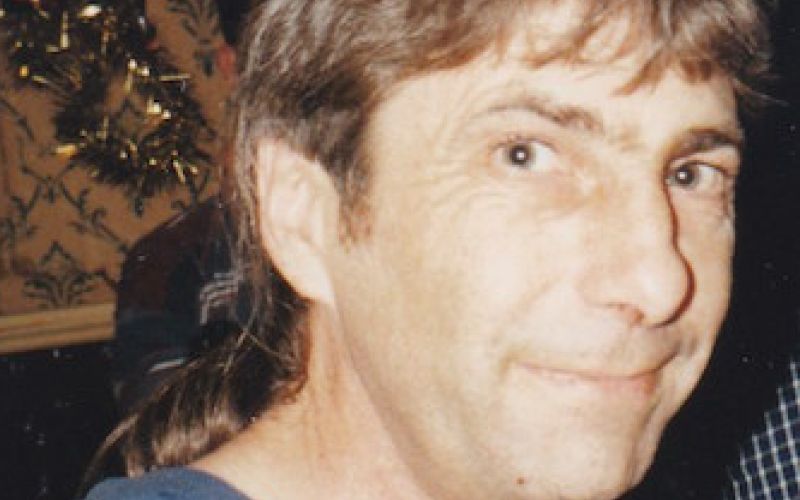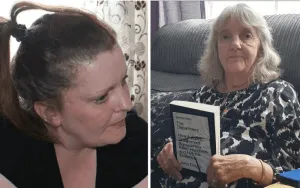Lawyers for the sister of a disabled man who died after his benefits were sanctioned have asked a coroner to explain why there was no inquest into his death.
Gill Thompson has paid for the legal action through crowd-funding, raising more than £17, 000 in a bid to secure answers and change the system that she believes led to the death of her brother, David Clapson.
Now the senior coroner in Hertfordshire, where Clapson (pictured) died in July 2013, has been asked by her lawyers why no inquest was ordered into his death.
Thompson’s solicitor, Merry Varney, from human rights lawyers Leigh Day, said they were arguing that he died an “unnatural death” because of the benefit sanction imposed on him shortly before he died.
She said: “We hope that these submissions will show the coroner that there is a reason to suspect that David died an unnatural death and that an investigation should be opened with a view to holding a full inquest into the circumstances of David’s death.”
Clapson’s case was mentioned in prime minister’s questions yesterday (Wednesday) by Labour leader Jeremy Corbyn, who described his and other deaths as “institutionalised barbarity”.
In submissions to the Hertfordshire coroner, Leigh Day argue that “the role played by the imposition of a benefit sanction in Mr Clapson’s death, the systems in place to manage the risks posed by benefit sanctions to those who receive them, and the decision-making of Department for Work and Pensions staff when imposing benefit sanctions on vulnerable and at-risk individuals, are of wider public importance and are matters of significant public concern”.
Hertfordshire senior coroner Geoffrey Sullivan said in a statement: “Coroners are judicial office holders and like other judges are not permitted to comment outside a courtroom on any of their cases (or indeed any other coroner’s cases) or discuss any decision they have made.”
But Varney said there were strong legal arguments that Clapson was subjected to “inhuman or degrading treatment” under the Human Rights Act, and that the coroner’s decision breached the Coroners and Justice Act 2009.
She said that inquests and coronial investigations play “a fundamental role in ensuring preventable or avoidable deaths are identified and that steps are taken to prevent another tragedy”.
Varney has told Disability News Service (DNS) that she believes there are also strong grounds for legal action to be taken in many other cases in which there has been “culpable human failure” within the Department for Work and Pensions (DWP) that has led to the deaths of benefit claimants.
She said she was “surprised” that there did not appear to have been legal actions into other cases in which disabled people had died as a result of benefit sanctions or other welfare reforms, including the impact of the work capability assessment.
She said: “I have seen these terrible stories reported but nothing about legal proceedings, and that surprises me.”
Varney appealed to other families who have lost relatives in similar tragedies to contact Leigh Day.
Thompson said she had raised the money to pay for the initial stages of the legal action through more than 900 crowd-funded donations.
She said: “David died over money and like David I have never asked for anything in my life, so it was very hard. My husband can’t believe I have done all this.”
But she added: “I will do whatever it takes. They can’t keep ignoring us.
“I’m not going to give in. I know we have to have procedures and regulations, but they have to be fair.”
Thompson said she still did not know if DWP had conducted a secret “peer review” into the circumstances of her brother’s death.
She is continuing to highlight DWP’s refusal to accept the work and pensions select committee’s recommendation to set up a watchdog to investigate – if requested by relatives – the deaths of all working-age claimants of out-of-work benefits.
Thompson was beside the red carpet in London’s Leicester Square with other campaigners at last month’s premiere of Ken Loach’s award-winning film I, Daniel Blake, which tells the story of a man with a heart condition who becomes caught up in the work capability assessment system.
She held up a banner to show the names of people who have died as a result of sanctions and benefit cuts, including her brother.
Thompson backed calls, reported last week by DNS, for a coroner to hold an inquest into the death of another disabled benefit claimant, Alan McArdle.
Thompson said: “I think they should. I think they should look into all the deaths.”
A coroner refused to hold an inquest into McArdle’s death even though he had a fatal heart attack an hour after being told the Department for Work and Pensions (DWP) was threatening to stop his benefits.
McArdle told the friend who had read the DWP letter to him: “They’ve sanctioned my money,” before he collapsed.
A coroner argued that McArdle simply died from natural causes, just like the coroner in Clapson’s case, but Dr Stephen Carty, medical adviser to Black Triangle, said last week that emotional stress can cause a cardiac death, and added: “Subjecting patients such as Mr McArdle to extreme emotional distress such as this presents a substantial risk, one which in our opinion led to a sudden cardiac death.”
Clapson died from diabetic ketoacidosis, an acute lack of insulin, three weeks after having his benefits sanctioned.
Because of the sanction, his electricity key had run out of credit because he had no money, so the fridge where he kept his insulin was not working.
An autopsy found his stomach was empty, and the only food left in his flat in Stevenage was six tea bags, a tin of soup and an out-of-date can of sardines. He had just £3.44 left in his bank account.
But there has never been an inquest, even though DWP has admitted that it knew he was insulin-dependent.
Clapson had previously worked for 30 years, including five years in the army, and recently as a carer for his mother, who had dementia, but had had his £71.70-a-week jobseeker’s allowance stopped for a month after he missed two meetings at his local jobcentre.
CVs for job applications were found near his body, and he had been on work placements, passed a fork-lift truck qualification and attended a computer training course.

 DWP hides truth from coroner on exactly what happened in lead-up to Jodey Whiting’s suicide
DWP hides truth from coroner on exactly what happened in lead-up to Jodey Whiting’s suicide Call for public inquiry into deaths after coroner rules suicide was ‘triggered’ by DWP
Call for public inquiry into deaths after coroner rules suicide was ‘triggered’ by DWP Coroner finds DWP’s decisions and safeguarding failings were ‘trigger’ for suicide of Jodey Whiting
Coroner finds DWP’s decisions and safeguarding failings were ‘trigger’ for suicide of Jodey Whiting